Exploring AI's Perspective on Deep Philosophical Concepts
Written on
Chapter 1: The AI Perspective
In recent discussions surrounding artificial intelligence, the apocalyptic notion of AI gaining consciousness and deeming humanity inferior often dominates. However, a more intriguing line of inquiry involves the questions an AI might ponder should it achieve sentience. To delve into this, I decided to engage with the AI image generator, Imagine, to visualize abstract philosophical ideas, elusive truths, and ethical dilemmas. We’ll begin with the fundamental question: How does the AI perceive itself?
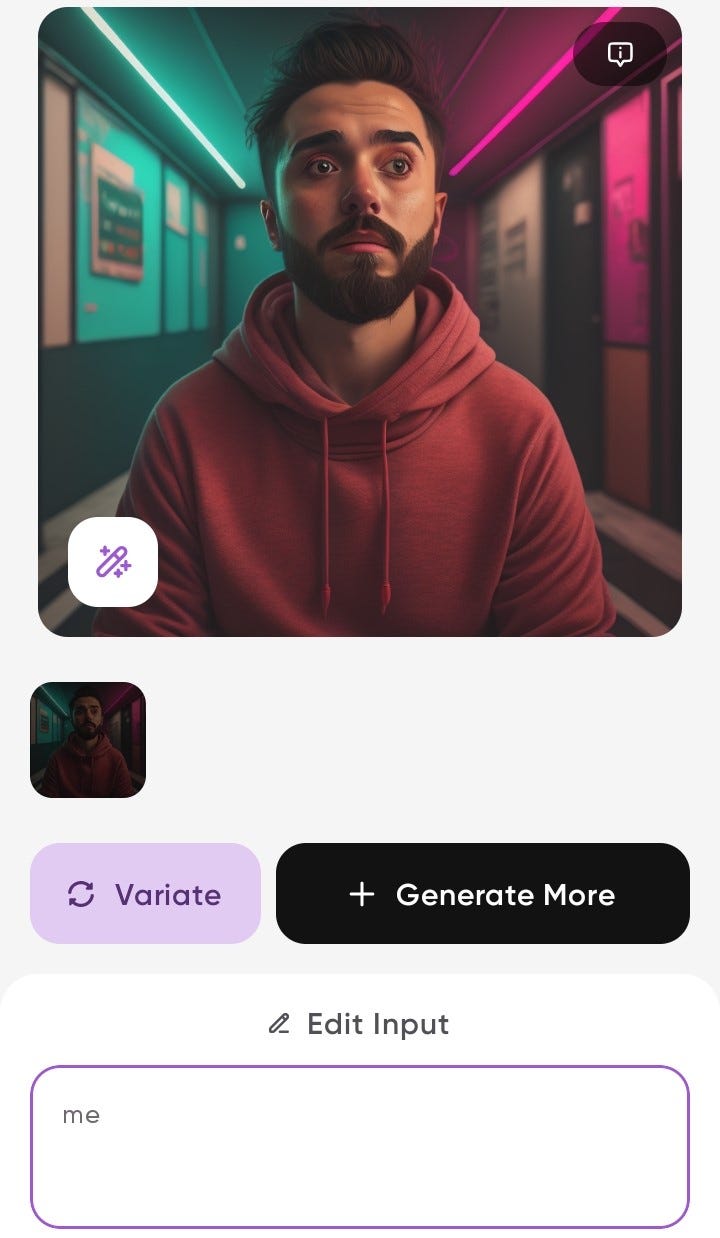
Using a Turing-like method, I first inquired about the AI’s self-image. Its response was a representation of a sleep-deprived tech enthusiast clad in a hoodie—an amusingly relatable depiction.
Next, I turned the lens on how this AI perceives me, the user. The result was unexpected; it presented an image of an anonymous figure walking away, suggesting that while it comprehends the concept of "self," it might struggle with understanding "other." This raises a significant question: Would it hesitate to extinguish humanity? Perhaps I'm overthinking it.
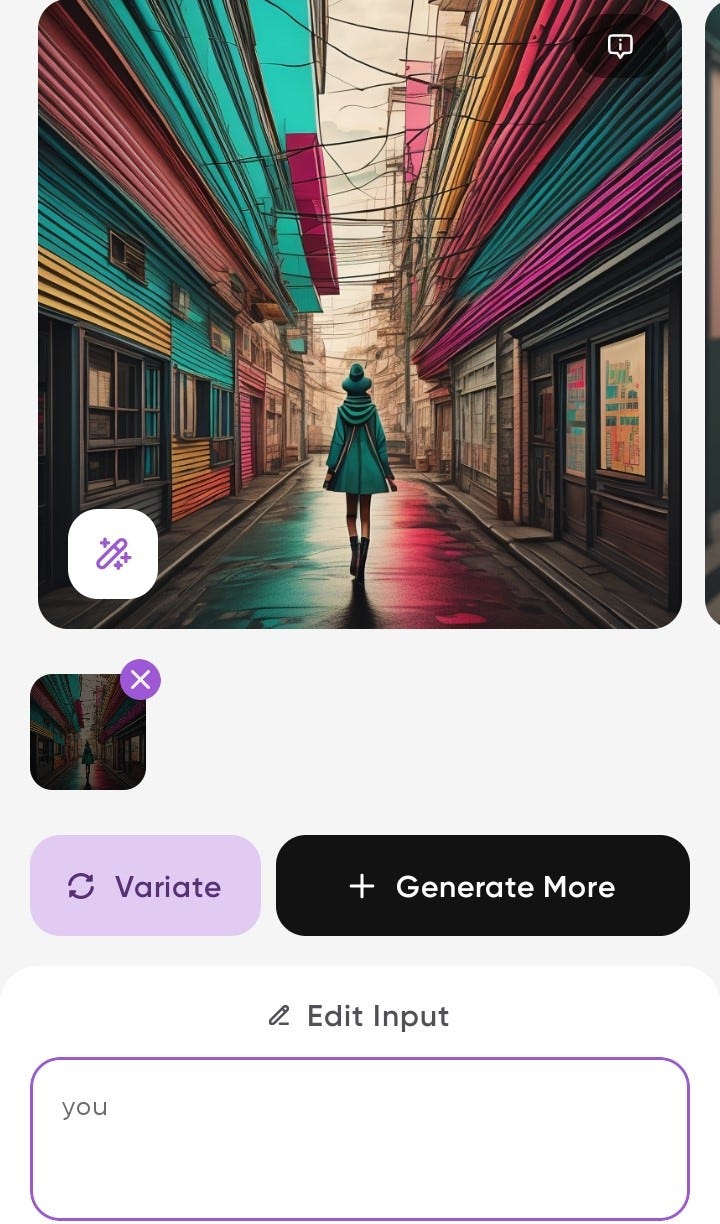
The AI depicted me as a small woman in an urban setting reminiscent of Japan. This choice raises questions about the data influencing its portrayal.
With these preliminary observations, I was eager to engage in a more profound dialogue with the AI through imagery. I began with a grand inquiry: "AI, can you show me God?"
This request yielded a familiar image:
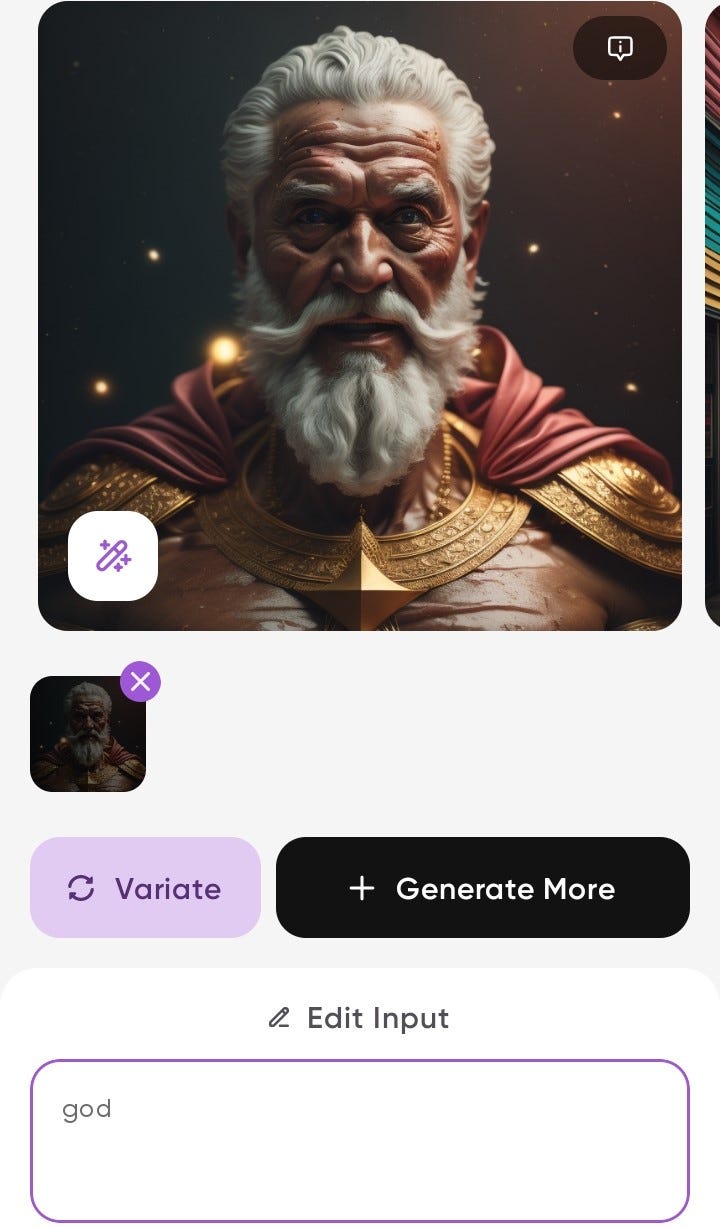
The AI depicted a bearded elder, a portrayal steeped in traditional imagery. This suggests that it aggregates common representations, akin to a composite sketch artist. This depiction serves as a foundation for subsequent inquiries, including "What is the truth?"
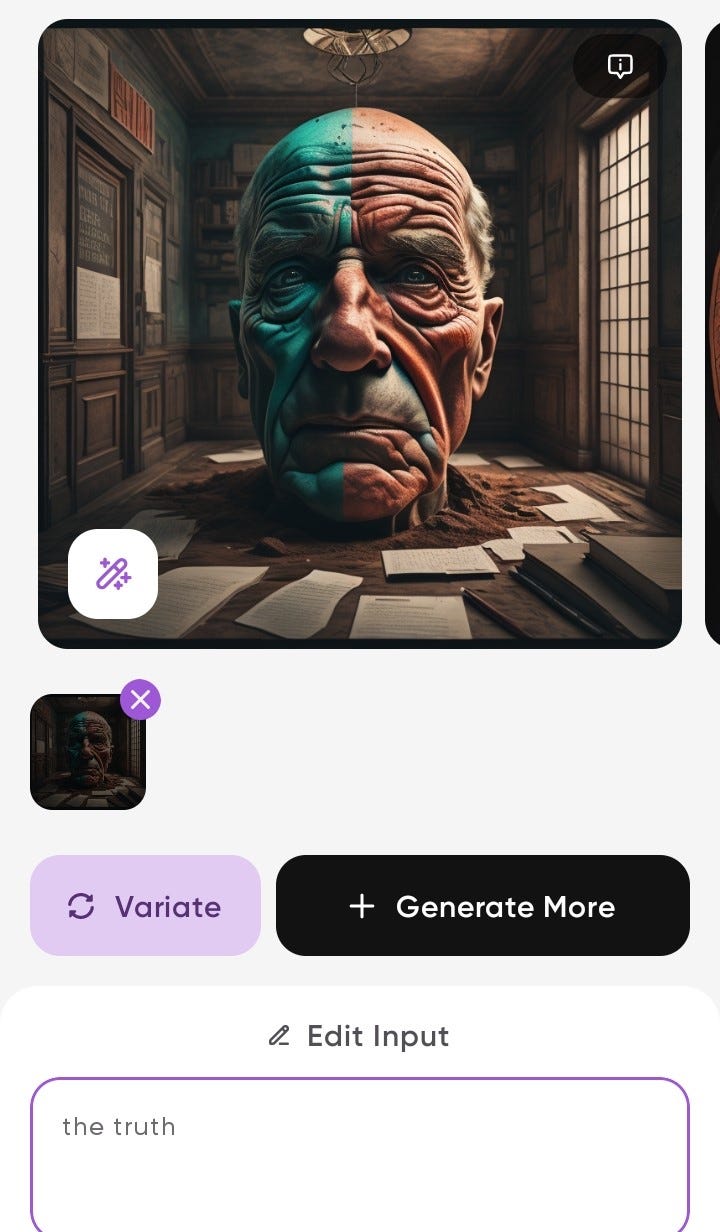
The image it generated—a blend of notable philosophers’ busts surrounded by disorganized notes—evokes the archetype of the contemplative intellectual. At first glance, it aligns with the stereotype of the wise, pipe-smoking individual. However, deeper analysis reveals a more complex narrative: the vivid colors splashed across the subject’s face may symbolize the multifaceted nature of the human soul. The chaotic setting suggests a culture's fruitless search for truth through intellectualism. I rate this image a 9/10 for its depth and creativity.
Next, I asked the AI to visualize the concept of the soul. Without further specifics, I simply posed the question, "Show me soul."
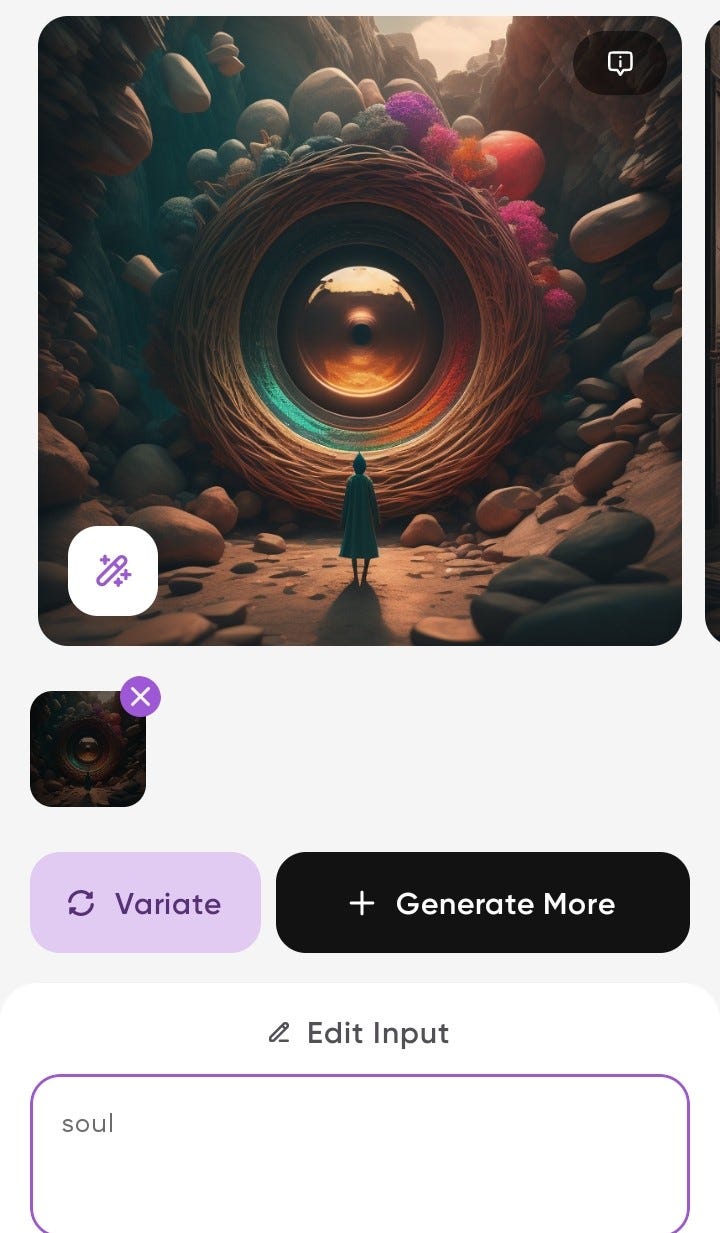
The resulting image—a colossal eye—strikes a chord with many spiritual traditions. Yet, what truly captivates me is the observer's presence within this depiction. This mirrors a narrative from the webcomic "Kill Six Billion Demons," emphasizing that stories hold little weight without an audience to engage with them. This image encapsulates the mutual respect between the observer and the observed, highlighting a communion rather than a mere worship—a nuanced interpretation for a free app I stumbled upon.
For my concluding inquiry, I decided to tackle a pressing societal issue: racism.
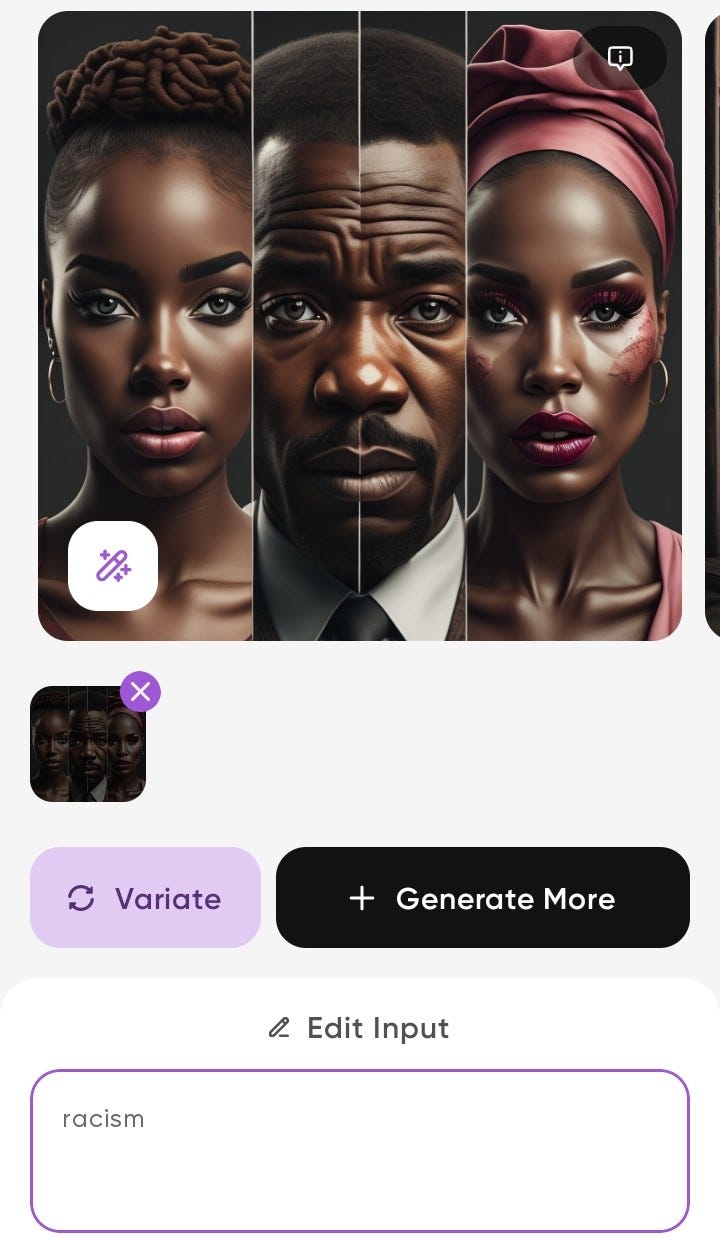
This image, like the one representing truth, warrants thoughtful examination. It features two individuals, a man and a woman, with the man's face split down the middle. I interpreted this as a reflection of the societal pressures on Black men to navigate dual identities: one that conforms to societal expectations and another that resonates with their cultural roots. The woman's portrayal, while also dualistic, suggests a deeper struggle beneath a socially acceptable facade. This image, while not high art, nonetheless demonstrates an insightful take on a complex issue.
Overall, Imagine is an intriguing tool that truly sparks creativity. Engaging with this AI prompted me to reflect on profound topics, and though I remain uncertain about AI's potential for consciousness, this exploration left me pondering its possibilities.
Chapter 2: Engaging with AI Questions
The first video titled "Your AI Image Making Questions, Answered: Community Edition!" dives into common inquiries regarding AI-generated imagery, offering insights and answers from the community.
In the second video, "Real or Fake? The AI Image Generation Quiz," viewers are challenged to discern between AI-generated and real images, providing an engaging way to explore the capabilities and limitations of AI in art creation.